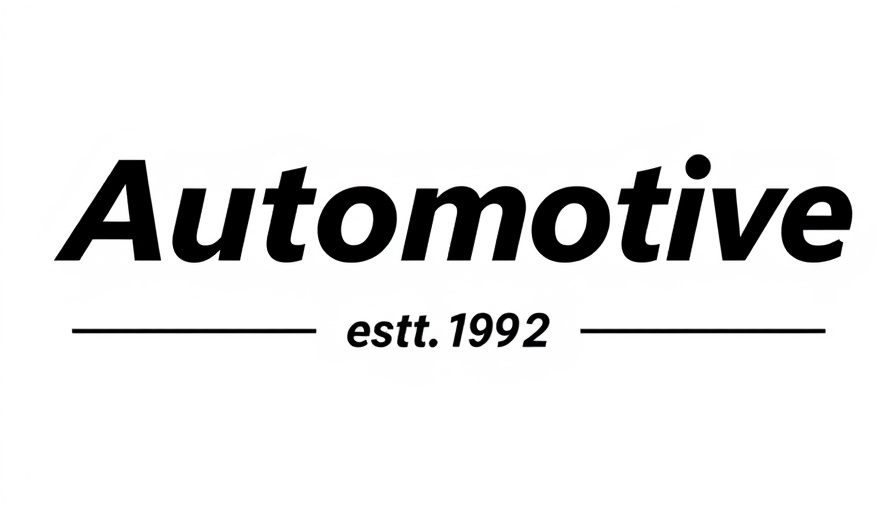
Understanding the Importance of Feedback in Leadership
In today's fast-paced business landscape, effective feedback isn’t merely a ritual but a crucial element for nurturing growth and enhancing operational efficiency, especially within the automotive industry. Despite the vast recognition of feedback's significance—indicated by 96% of employees affirming its role in personal development—it's disheartening that 32% of employees may go months without receiving it. When feedback does occur, only 50% of recipients act upon it, reflecting a critical gap that dealership management must address to propel their teams forward.
Avoiding Common Mistakes in Providing Feedback
Leadership should focus on clear, constructive feedback that empowers employees. It's essential to steer clear of common pitfalls that often diminish the impact of feedback and commitment among team members. Here are five key mistakes to avoid:
- Dancing around the issue: Be direct. Avoid vague language and get to the core of the behavior needing change.
- Focusing on the past: Shift conversations towards improvement. Ask, "What can you do to improve this situation?" and offer support.
- Failure to follow up: Commit to a follow-up by saying, “Let’s meet next week to discuss your progress.” This reinforcement nurtures accountability.
- Saying “we” instead of “you”: Take ownership in accountability. Instead of, “We need to improve,” specify who is responsible for action.
- Being overly harsh: Aim for a balance of kindness and clarity. Feedback should uplift, not alienate.
The Future of Feedback: Strategies for Dealership Management
Dealership leaders can adopt strategies that promote a culture of continual feedback rather than sporadic performance reviews. This involves engaging employees in goal-setting discussions and leveraging tools to facilitate open communication. Techniques such as “feedforward,” where the focus is on future actions rather than past mistakes, can be transformative in achieving operational efficiency and enhancing customer satisfaction.
Real-World Applications and Benefits
By implementing effective feedback strategies in workshops and training sessions, leaders can empower their teams. For instance, acknowledging the important behaviors—such as a team member’s dedication to customer service—fosters a positive work environment. Sharing practical insights and addressing performance directly while maintaining a human touch can lead to better employee engagement and satisfaction.
Take Action: Elevating Your Leadership Game
As you think about your dealership's team dynamics, consider how consistent and effective feedback can transform your leadership approach. Encourage openness by asking for permission before offering feedback, and focus on developing capabilities rather than just holding team members accountable. By consciously avoiding feedback pitfalls and adopting a forward-looking approach, you position your dealership for greater success.
 Add Row
Add Row  Add
Add 

 Add Row
Add Row  Add Element
Add Element 




Write A Comment